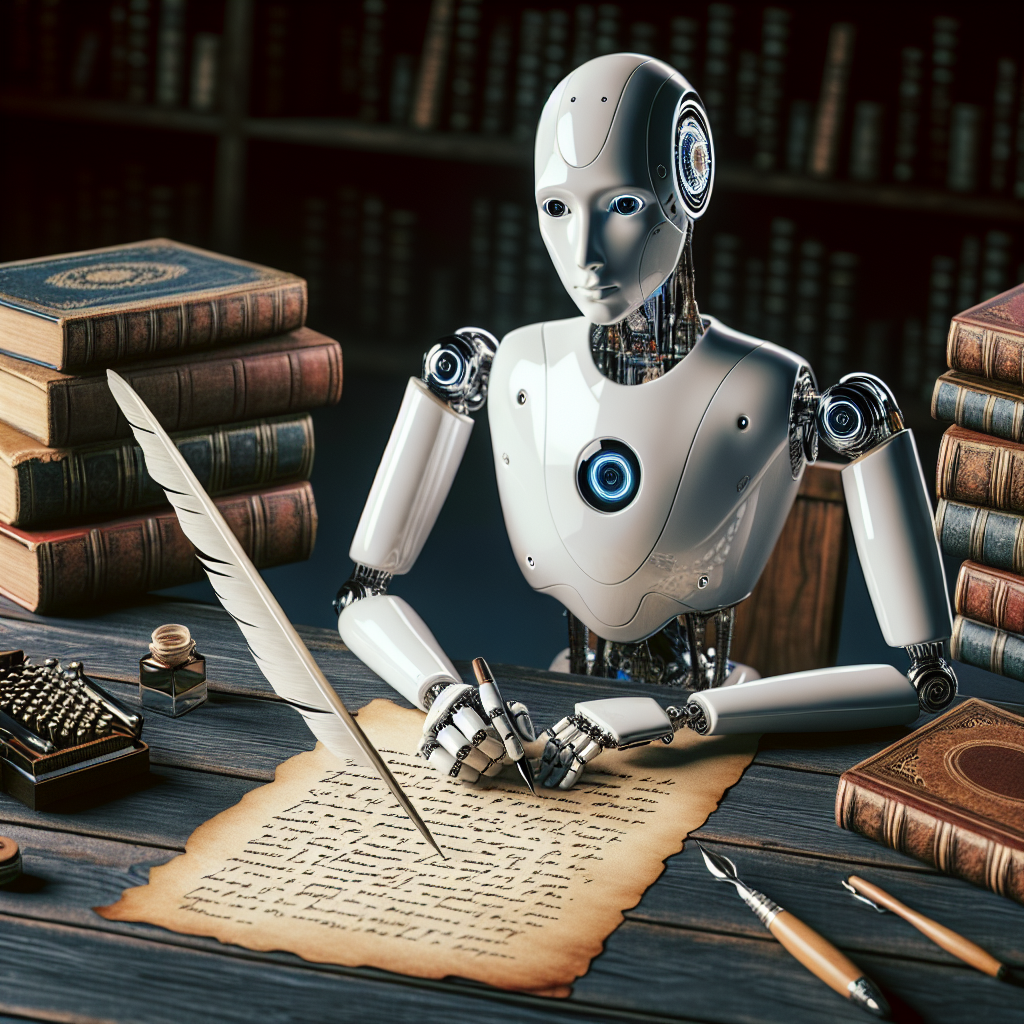AI and Literature: Can Machines Write Novels?
In recent years, artificial intelligence (AI) has made significant advancements in various fields, including literature. AI-powered tools and programs have been developed to help writers in generating ideas, editing, and even creating entire novels. This has sparked a debate among writers and literary enthusiasts – can machines really write novels?
To answer this question, it is important to understand how AI works in the context of literature. AI algorithms are trained using vast amounts of data such as books, articles, and other written content. These algorithms analyze the patterns and structures of the text to generate new content. AI-powered writing tools can help writers in various ways, such as suggesting plot ideas, improving grammar and style, and even generating entire chapters based on a given prompt.
One of the most famous examples of AI-generated literature is “The Policeman’s Beard is Half Constructed”, a collection of short stories written by a computer program called Racter in the 1980s. While the stories were not as coherent or engaging as those written by human authors, they still managed to capture the attention of readers and critics alike. This experiment demonstrated the potential of AI in the field of literature.
In recent years, AI has been used to write novels that have been published and well-received by readers. For example, “The Day A Computer Writes A Novel” by AI program Hatsuho Kasai was shortlisted for a literary award in Japan. The novel was created using an AI program that analyzed various works of fiction to generate a story that was both unique and engaging.
While AI-powered writing tools have shown promise in helping writers in their creative process, there are still limitations to what machines can do. AI lacks the emotional intelligence and creativity that human writers possess, which often results in writing that feels robotic and lacks depth. AI can generate text based on patterns and structures, but it cannot replicate the human experience and emotions that make literature truly impactful.
Another challenge with AI-generated literature is the issue of originality and copyright. Since AI algorithms are trained using existing works of fiction, there is a risk of plagiarism and copyright infringement. It is important for writers and developers to be mindful of these concerns when using AI in the creation of literary works.
Despite these limitations, AI has the potential to revolutionize the field of literature in the years to come. AI-powered writing tools can help writers in brainstorming ideas, improving their writing skills, and even collaborating with other writers. AI can also be used to analyze literary trends and predict the success of a novel based on data analytics.
As AI continues to evolve and improve, it is likely that machines will be able to write novels that are indistinguishable from those written by human authors. However, the role of AI in literature will always be a complement to human creativity and imagination. While machines can help in the writing process, it is ultimately up to human writers to infuse their work with emotion, depth, and originality.
FAQs:
Q: Can AI write novels that are as good as those written by human authors?
A: While AI has shown potential in generating text and creating stories, it still lacks the emotional intelligence and creativity that human writers possess. AI-generated novels may lack depth and originality compared to those written by human authors.
Q: Are there any copyright concerns with AI-generated literature?
A: Yes, there are concerns about plagiarism and copyright infringement when using AI to generate literary works. Writers and developers need to be mindful of these issues and ensure that their work is original and does not violate copyright laws.
Q: How can AI be used in the field of literature?
A: AI can be used to help writers in brainstorming ideas, improving their writing skills, and analyzing literary trends. AI-powered writing tools can also assist in editing and proofreading, as well as generating text based on a given prompt.
Q: Will AI replace human writers in the future?
A: While AI has the potential to revolutionize the field of literature, it is unlikely that machines will completely replace human writers. The role of AI in literature will always be a complement to human creativity and imagination, rather than a substitute.

